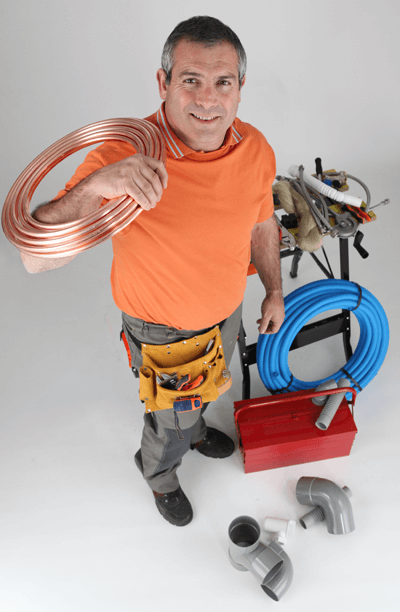
For a business in the Antelope Valley, a major plumbing failure is more than just an inconvenience—it’s a threat to your bottom line. A clogged sewer line can shut down your restrooms, a failed water heater can halt operations for a restaurant, and a hidden leak can lead to catastrophic water damage and expensive mold remediation. Unlike residential plumbing, commercial systems are subject to much heavier use and more stringent health and safety codes. This is why a reactive, “fix-it-when-it-breaks” approach is a recipe for disaster. A proactive, preventative plumbing maintenance plan is one of the most important investments a business owner can make to prevent downtime, ensure compliance, and avoid costly emergency repairs.
The Unique Demands on a Commercial Plumbing System
Think about the difference in usage. A home toilet might be flushed a dozen times a day; a toilet in a busy office or retail store could be flushed hundreds of times. The kitchen drain in a restaurant handles exponentially more grease and food waste than a home sink. This high volume of use puts immense strain on pipes, fixtures, and equipment. Commercial plumbing systems are designed to be more robust, but they still require regular professional attention to remain in peak condition.
The Core Components of a Commercial Maintenance Plan
A professional preventative maintenance plan is tailored to your specific business, but it generally focuses on several key areas to prevent common points of failure.
- Comprehensive Drain Cleaning: For restaurants, a key service is regular hydro-jetting of kitchen lines to clear the heavy buildup of fats, oils, and grease (FOG) that can lead to backups and health code violations. For all businesses, cleaning floor drains, restroom drains, and main sewer lines prevents clogs that can shut down your facility.
- Grease Trap Maintenance: Restaurants and food service businesses are required to have grease traps or interceptors to prevent FOG from entering the municipal sewer system. Regular, professional cleaning of these traps is not only necessary for them to function correctly but is also often mandated by local health regulations.
- Backflow Prevention Testing: Commercial properties are typically required to have backflow prevention devices installed to protect the public water supply from contamination. As mandated by plumbing codes based on standards from organizations like the American Society of Sanitary Engineering (ASSE), these devices must be tested annually by a certified professional to ensure they are functioning correctly.
- Water Heater Inspection: A commercial water heater is a critical asset. A maintenance plan includes checking for leaks, testing pressure relief valves, flushing sediment from the tank (which improves efficiency and lifespan), and inspecting gas or electrical connections.
- Fixture and Leak Inspection: A technician will inspect all toilets, faucets, and visible piping for small drips or leaks that can waste thousands of gallons of water and indicate a pending fixture failure.
As the U.S. Small Business Administration (SBA) often advises, staying on top of regulatory compliance is a key part of risk management. A plumbing maintenance plan helps ensure you are always up to code.
Your Partner for Commercial Plumbing in Antelope Valley
Don’t wait for a plumbing disaster to disrupt your business. A proactive maintenance plan is a smart investment that saves you money, prevents downtime, and gives you peace of mind. For business owners throughout the Antelope Valley, the team at Brock Plumbing offers customized maintenance plans and a full suite of commercial plumbing services to keep your business running smoothly. Contact us today to discuss a plan for your property.

